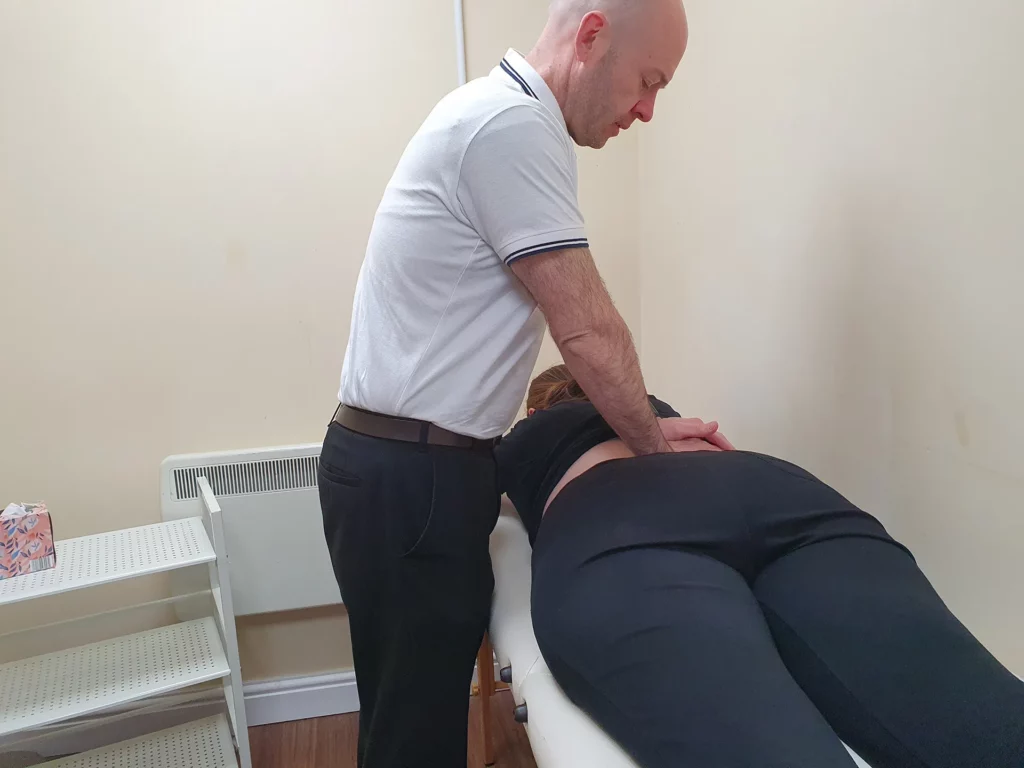Hip Pain

Conditions
Hip Pain
Hip pain can be a distressing sensation experienced in and around the hip joint. It’s often characterized by discomfort, soreness, or even sharp, stabbing sensations. Hip pain can arise from various causes, ranging from minor issues like muscle strains or bruises to more serious conditions such as arthritis or fractures.
Individuals with hip pain may notice difficulty with certain movements like walking, climbing stairs, or even sitting for extended periods. The pain may be localized directly over the hip joint or radiate to the groin, buttocks, or thigh. In some cases, hip pain may worsen with activity and improve with rest, while in others, it may persist regardless of movement.
Common causes of hip pain include:
Individuals with hip pain may notice difficulty with certain movements like walking, climbing stairs, or even sitting for extended periods. The pain may be localized directly over the hip joint or radiate to the groin, buttocks, or thigh. In some cases, hip pain may worsen with activity and improve with rest, while in others, it may persist regardless of movement.
Common causes of hip pain include:
- Muscle Strain: Overuse or sudden movements can strain the muscles surrounding the hip joint, leading to pain and discomfort.
- Bursitis: Inflammation of the bursae, small fluid-filled sacs that cushion the hip joint, can cause pain, especially with movement.
- Arthritis: Conditions like osteoarthritis, rheumatoid arthritis, or other inflammatory forms of arthritis can lead to gradual deterioration of the hip joint, resulting in pain and stiffness.

- Hip Fracture: A break in the bones of the hip joint, often caused by falls or trauma, can cause severe pain and require immediate medical attention.
- Labral Tear: Injury to the cartilage (labrum) surrounding the hip socket can cause pain, clicking, or locking sensations in the hip joint.
- Hip Impingement: Abnormalities in the shape of the hip joint can lead to impingement, where the bones rub against each other, causing pain and limited range of motion.
- Sciatica: Compression or irritation of the sciatic nerve, which runs from the lower back down to the legs, can cause pain that radiates from the lower back through the hip and down the leg.
- Referred Pain: Conditions affecting nearby structures such as the lower back or pelvis can sometimes cause pain that is felt in the hip joint.
Treatment for hip pain depends on the underlying cause and severity of the symptoms. It may include rest, ice or heat therapy, physical therapy, medications such as pain relievers or anti-inflammatories, injections, or in severe cases, surgery. Seeking medical evaluation is crucial for proper diagnosis and management of hip pain to prevent further complications and improve quality of life.
Frequently Asked Questions
Questions asked by our patients
What if I need to cancel an appointment?
I ask if you need to change or cancel your appointment that you give 24hrs notice. If you cannot let me know of any changes before then, you will be charged for the appointment in full.
Will I need more than 1 session?
This will depend on your specific circumstances and treatment plan. Sometimes only the initial assessment and treatment with self-management strategies is all that is required, other times such as with acupuncture or massage a course of treatment is needed.
What if I need further investigations?
I can refer you for a private scan if required through scan.com.
Do you provide home visits?
Yes, home visits can be arranged if required for our elderly clients, please view our sister site www.shirleyphysiotherapy.com for more information.
Are you registered with insurance companies?
Yes I am registered with AXA, Aviva, and Vitality.
Are your registered with the Health and Care Professions Council and Chartered Society of Physiotherapy?
I am fully registered with both above governing bodies for over 15 years.
Do you have insurance?
I am fully insured through the Chartered Society of Physiotherapy.